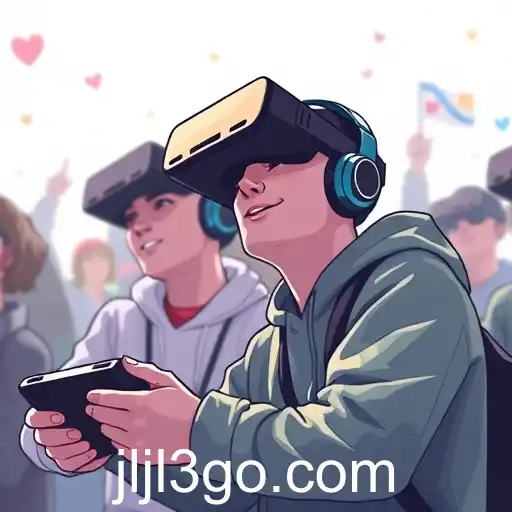
Exploring the dynamics and impact of gaming communities in the digital age.
In the ever-expanding universe of online entertainment, gaming platforms have become important social hubs where players from all over the world converge to share experiences, strategies, and friendships. Among these platforms, the keyword 'jljl3' has emerged as a significant identifier within the English gaming community, representing both a gateway and a focal point for players seeking immersive experiences.
The growth of online gaming communities like those associated with 'jljl3' is not just a trend but a fundamental shift in how social interaction is perceived. In a world increasingly characterized by digital interactions, these communities offer a sense of belonging and shared purpose. Unlike traditional forums, where exchanges are often limited to static messages, gaming platforms encourage real-time interactions that more closely mirror face-to-face communication, fostering stronger bonds among participants.
The dynamics of these communities are constantly evolving, influenced by technological advancements and cultural shifts. As we stand in the year 2025, several trends are shaping the current landscape. The integration of artificial intelligence into games enhances user experience by creating more adaptive and personalized environments. Additionally, the rise of VR and AR technologies is elevating gaming from a visual experience to a full-body engagement, allowing players to inhabit their favorite fictional worlds more fully.
Reports indicate that online gaming communities have also become powerful tools for social change. They provide platforms where players can discuss real-world issues, organizing charitable events or fundraising for social causes. These virtual gatherings translate into tangible impacts, demonstrating the power of digital networks to inspire action beyond the screen.
Despite these positive aspects, challenges remain prominent. Issues of online harassment and toxicity can undermine the sense of safety and community that these platforms strive to create. Developers and community leaders need to continuously implement and enforce measures that promote inclusive and respectful digital spaces.
Looking ahead, the evolution of gaming communities will likely continue to intersect with broader technological innovations and societal changes. As a result, platforms like those linked with 'jljl3' will have a critical role in shaping future digital interactions, underlining the importance of gaming not just as leisure but as a significant component of modern social structures.




